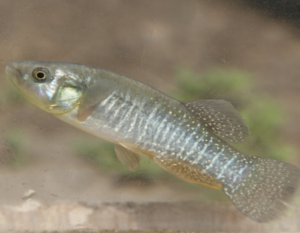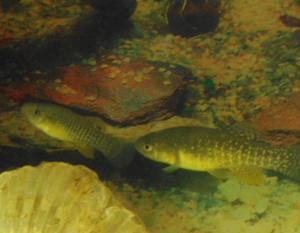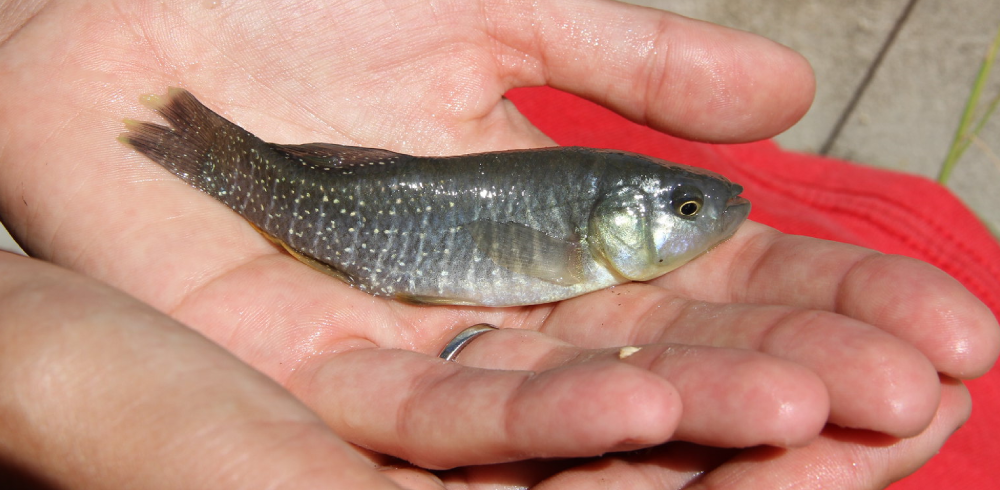
Welcome back to the marsh!
Today we will be examining one of the smaller fish that call our tidal marshes home, the mummichog! Mummichogs, Fundulus heteroclitus, are a very common species of killifish that can be found in the James River watershed from Richmond to Hampton. What this species lacks in size, it makes up for ten times over in tenacity and the will to live. Mummichogs are so tough that they can survive wild temperature swings over a short period of time. If they are stranded in pools during low tide in the winter, they can withstand nearly being frozen. In the summer, these same pools can reach temperatures over 120°F!
These fish also have a specially adapted swim bladder that can act as a primitive lung. By coming to the surface and manually filling it with air, mummichogs can survive in water with little or no dissolved oxygen. These conditions would kill many other organisms and plants! Besides being excellent survivors, mummichogs are critically important to maintaining a healthy food web. They feed many species that are important and desirable for humans, such as white catfish, striped bass, blue crabs, red drum, flounder, and many more. Other species such as terns, herons, and gulls will use mummichogs to present as “food gifts” during the start of the breeding season and will subsequently use these diminutive fish to feed their chicks.
 Would you like to see mummichogs in person? Head down to your local marsh and explore! They can be found around the surface, cruising in schools. If you would like to see these guys from a canoe or kayak, be sure to check out the James River Association’s “Connect with the James” paddles to see these wonderful fish and many more unique denizens that call the James River Watershed home!
Would you like to see mummichogs in person? Head down to your local marsh and explore! They can be found around the surface, cruising in schools. If you would like to see these guys from a canoe or kayak, be sure to check out the James River Association’s “Connect with the James” paddles to see these wonderful fish and many more unique denizens that call the James River Watershed home!

